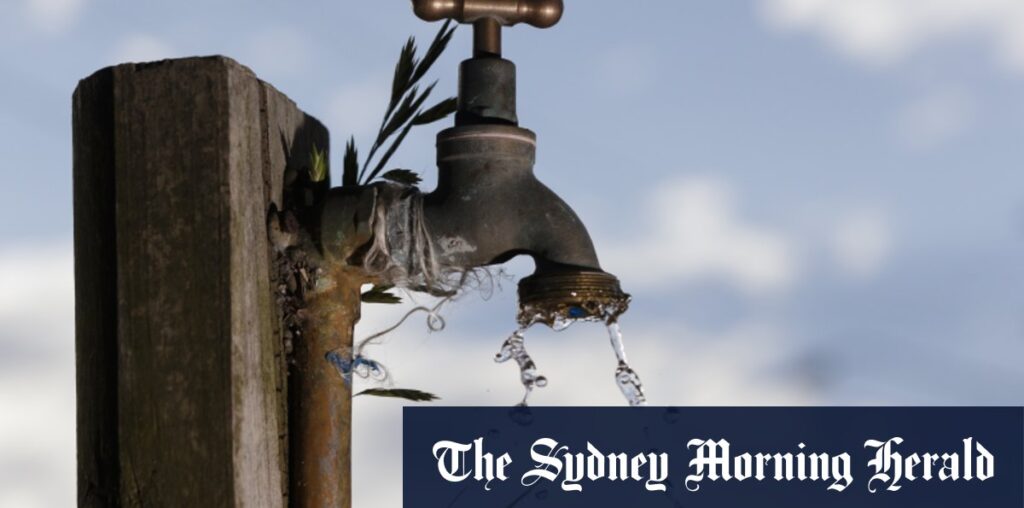Melbourne Water paid $80.82 million in capital repatriation, $22.2 million in dividends, plus “a new efficiency dividend of $24.5 million … as part of the government’s COVID debt repayment plan”, it said in its annual report.
Pallas determines dividends and whether to withdraw more cash after consultation with the corporations’ boards and Water Minister Harriet Shing.
Greater Western Water paid $71.8 million in capital repatriation for the year, acquitted $64.74 million in dividends and paid a further $1.89 million in efficiency savings.
Dr Erin O’Donnell, a senior lecturer in water policy at the University of Melbourne Law School, said Greater Western Water could already be under pressure after forgoing bills for part of the year because of a technical issue.
“I get that the government is trying to pay down debt, but this will put upwards pressure on water corporation prices,” O’Donnell said.
“In what remains a cost-of-living crisis, this does appear to be robbing Peter to pay Paul. We all lose out if water corporations end up scrimping on essential maintenance to pay government dividends.”

Treasurer Tim Pallas pulls hundreds of millions of dollars a year from water corporations.Credit: Joe Armao
A Greater Western Water spokeswoman said the dividend would not affect prices.
The government, water providers and the Essential Services Commission (which sets prices every five years) insist the payments have no consequence for customers’ bills. The commission sets prices based on how much each business needs to recover to provide its services.
O’Donnell has previously argued that if the water authorities had cash to spare for the government, then customers could reasonably ask whether they were paying too much.
Melbourne has the lowest average water bills of all Australian capital cities and the government said those for regional Victorians were also among the cheapest.

The government says Melbourne has the lowest average water bills of all Australian capital cities.Credit: Vince Caligiuri
“Distributions from government business enterprises are reinvested through the budget, helping to fund important infrastructure such as schools, hospitals and roads and vital services that Victorian families rely on,” a government spokeswoman said.
Some of the corporations had to borrow from Treasury Corporation of Victoria, which then makes a profit on the interest. That corporation paid $144.6 million in dividends for the year.
Pallas, in announcing the COVID repayment plan last year, said efficiencies would save $2.1 billion without affecting frontline services.

Housing Minister Harriet Shing.Credit: AAP
The treasurer has now charged Ports Victoria $400,000 for an “efficiency savings payment”, while State Trustees was sent a $736,000 bill.
Cladding Safety Victoria also paid an unspecified COVID levy.
The Victorian Managed Insurance Authority, which routinely posts a deficit and which was ensnared in the state’s failure to properly regulate domestic building insurance last year, was asked to pay $600,000 in capital repatriation. That was after going through a major restructure, “which helped us meet the efficiency savings required by the Victorian government”, it said.
Development Victoria paid $27.081 million in dividends, including $352,000 in “efficiency savings dividends”.
Loading
South East Water was handed a $194.36 million bill for capital repatriation, $51.427 million for dividends and an extra $1.89 million in efficiency savings “as part of the government’s COVID debt repayment plan”.
Yarra Valley Water paid $72.8 million in capital repatriation, on top of $58.1 million in dividends and $1.7 million in COVID efficiencies.
Gippsland Water was told to repay $892,000 in capital repatriation, and North East Water made a $560,000 state efficiency payment.
Goulburn Murray Water sent the government $700,000 as capital repatriation and Central Highlands Water had $672,000 withdrawn as a state efficiency payment.
The Department of Treasury and Finance also sent $500,000 bills to Lower Murray Water and Wannon Water.
Grampians Wimmera Mallee Water will stump up $400,000, while Southern Rural Water was paying $300,000 and Westernport Water was returning $200,000.
Shadow finance spokeswoman Jess Wilson said Labor was taking money from corporations that were carrying debt.
“Labor continues to rip money out of public agencies to prop up its own budget,” Wilson said.
Loading
“The Allan Labor government’s ‘capital repatriations’ are nothing more than debt-shifting from one set of books to another.”
Melbourne Water’s acting executive general manager of corporate services, Lachlan Bakewell, said the payments did not affect the company’s ability to deliver essential services and maintenance.
“As a Victorian-owned statutory authority, a percentage of our profits are returned to government to spend on essential infrastructure like schools and hospitals,” Bakewell said.
South East Water chief financial officer Kimberley Lamden said the government had the authority to request repayment of its capital contribution as sole shareholder and that future investment was a priority.
A Yarra Valley Water spokeswoman said the company’s bills were among the cheapest in the country and the government payments wouldn’t change this, with a continued commitment in investing for the future.
Start the day with a summary of the day’s most important and interesting stories, analysis and insights. Sign up for our Morning Edition newsletter.

